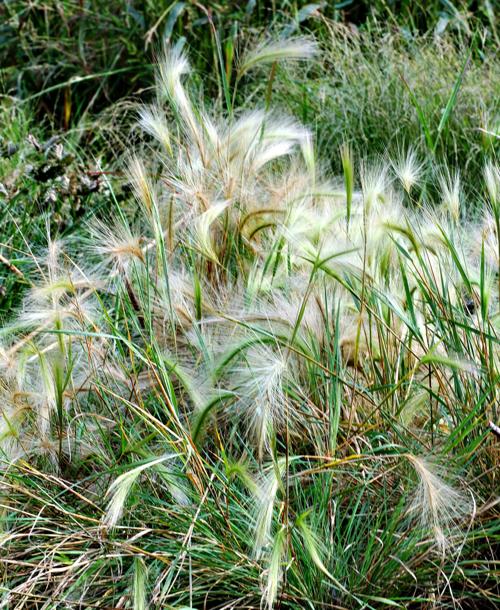People for the Ethical Treatment of Animals (PETA) recently issued a warning for people taking to the great outdoors with their pets this summer to beware of a little-known deadly danger: foxtail grass.
Foxtails are the barbed seed heads of a grass that grows primarily in the western states, but has spread to much of the country, the Virginia-based animal rights organization said.
”These innocuous-looking seeds can become embedded in dogs’ eyes, ears, mouths, noses, toes, genitals and skin. They burrow relentlessly into the body and can even reach the spine and internal organs, including the brain and lungs.
”Once embedded, they can wreak havoc, causing anything from infections and seizures to blindness and death, depending on which part of the body is affected. Foxtail season is normally from about June to December, but with the dry weather, it’s getting longer and longer,” the PETA release said.
This grass is one of several that can pose problems for animals, said Peter L. Warren, the urban horticulture agent for the Pima County Cooperative Extension and the University of Arizona who writes the Garden Sage column for Home + Life each Sunday.
“In fact, there are many grasses that have sharp awns that when they get into the ears or skin of dogs can penetrate to cause infections and abscesses. There are cases of dogs inhaling the awns and getting severe lung abscesses. Once the sharp awn has penetrated the skin, it keeps going inward,” Warren said.
Grass awns are a significant problem in some areas, especially to outdoor hunting breeds of dogs, he said.
The grasses that cause the most problem are cheat grass, foxtail barley, cenchrus species, creeping foxtail (Alopecurus pratensis) and needle grass (Stipa species) among others, he said.
These grasses are also a problem to horses and cattle that eat the awns in hay, causing big mouth ulcers, and abscesses around the mouth.
Dr. Jen Wilcox, director of veterinary services at Pima Animal Care Center, said she hadn’t seen a spike in foxtail (grass awn) foreign bodies this spring.
However, she noted there are other dangers that require pet owners to keep a close watch.
“We frequently encounter dogs with abscesses between their toes and prescribe antibiotics, pain medications, and sometime surgery if dogs are severely affected. Most dogs have cactus spines rather than foxtail awns imbedded in these areas.”





